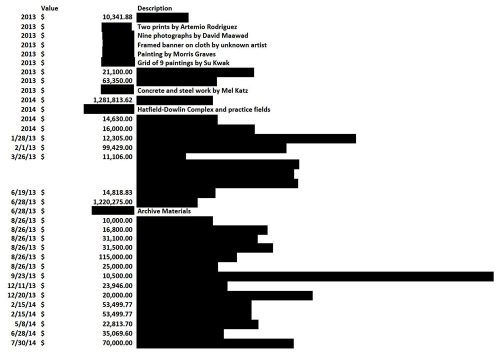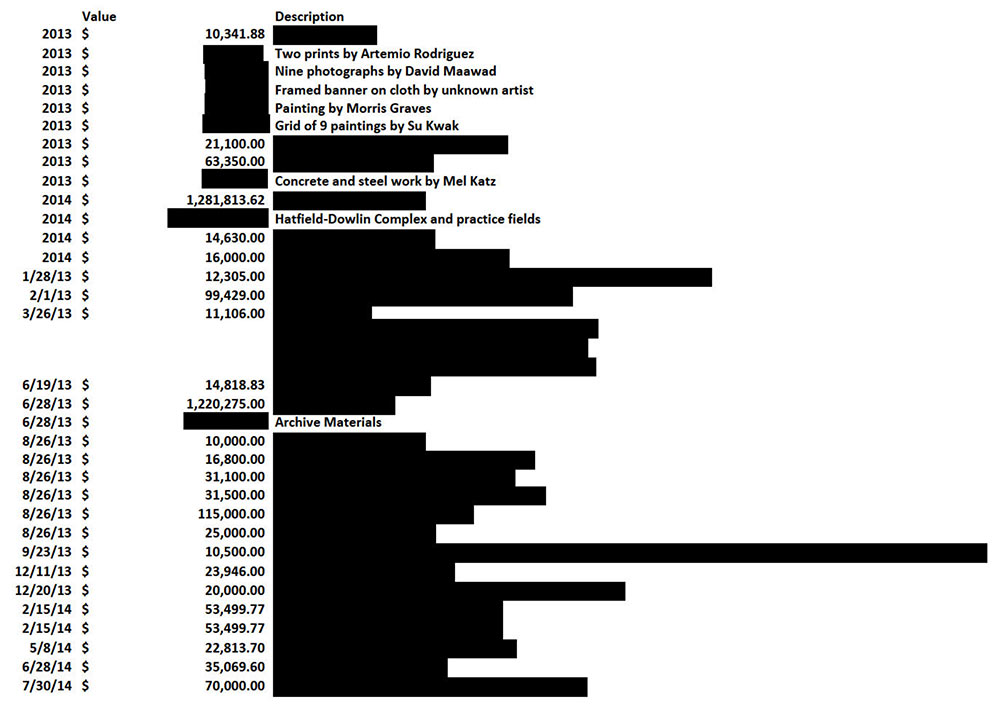
In September, following up on rumors that a private jet had been donated to the University of Oregon, EW made a public records request for “non-monetary gifts/donations made to the UO, the UO Athletic Department and the UO Foundation valued over $10,000 from Jan. 1, 2013 through Aug. 2014.”

The UO responded to the public records request last week and EW was told, “Some information is exempt under ORS 192.501 (2).” That statute refers to “trade secrets.”
EW was provided the value of some donations, but not what they were, and was given what other donations were — mainly artwork and the football team’s new Hatfield-Dowlin Complex and practice fields — but not their value. Estimates on the Phil Knight donated football complex range from $68 million to $138 million.
Two of the unnamed non-monetary donations were worth more than $1 million. The total value of the non-monetary donations whose values were given over the one-and-a-half-year period came to around $3.2 million.
Trade secrets under Oregon law “may include, but are not limited to, any formula, plan, pattern, process, tool, mechanism, compound, procedure, production data, or compilation of information which is not patented, which is known only to certain individuals within an organization and which is used in a business it conducts, having actual or potential commercial value, and which gives its user an opportunity to obtain a business advantage over competitors who do not know or use it.”